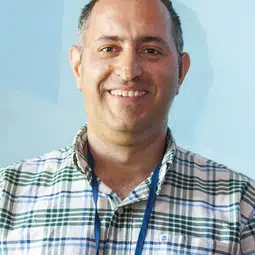
Intellectual Property
We did not file any patent yet.
Looking for
Ba Alf Seen Ltd - AKYAS Sanitation
A disposable, multiple-use compostable bag that prevents disease and transforms feces into fertilizer that is safe for use.
Lack of access to sustainable sanitation is a global problem affecting billions of people. Of the underserved populations, no access to safe sanitation contributed by poverty, lack of infrastructure, or disasters, result in loss of human dignity and exposure to a myriad of health problems. Globally, 2.6 billion people lack access to improved sanitation facilities, largely because they live in homes with no sewage plumbing. When people do not have safe, private toilets in or near their homes, many practice open defecation. Open defecation contributes to the spread of disease, malnutrition and environmental contamination. Some 827,000 people in low-and middle-income countries die each year because of poor water, sanitation and hygiene, and poor sanitation is believed to be the primary cause of more than half of these deaths.4 Combined with lost economic productivity and increased health care costs, this is estimated to have cost the global economy close to US$225 billion in 2015. Furthermore, the lack of conveniently accessible, private toilets in or near homes exposes women and girls to the risk of sexual assault and violence daily. With increasing scarcity of potable water, traditional methods of wastewater collection and treatment may be unsustainable. The average person produces on average about 200-400 g of feces and 1-1.5 L of urine per day and needs 10-20 L of water to flush the waste from the toilet. As a result, the average person flushes between 3650-7300 L of clean water per year. This consumes excessive water and/or fuel; and in areas where there are water shortages, failure of traditional methods of wastewater collection pollutes communities, and poisons their environments and local water resources. Clearly, we need a new way to “flush”—a clean, low-cost, low-carbon, sustainable solution that requires no pipes, power or plumbing.
AKYAS is a disposable, multiple-use compostable bag that can be used in many settings regardless of sanitation infrastructure. Our innovation disinfects pathogens within the feces to prevent disease transmission. The project utilizes the energy within fecal products by transforming the feces into fertilizer that is safe for use. In turn, this improves the viability of small-scale agriculture among families that can contribute to food securit
Currently, we are registered as an SME in Amman- Jordan. We have a pilot in Turkey with a partnership: Ministry of Foreign Affairs, The BMGF, and UNDP. A pilot in Jordan
The preparation and examination of new material in the fields of Nano-technology and its application
TRL 4: Small Scale Prototype
Currently, we are registered as an SME in Amman- Jordan. We have a pilot in Turkey with a partnership: Ministry of Foreign Affairs, The BMGF, and UNDP. A pilot in Jordan
Zero plastic product: AKYAS bags are made from 100% natural and sustainable resources. Therefore, the bag compost with time into a carbon-based product, or being eaten by bacteria. Decentralized Toilet: AKYAS toilet can be built anywhere, anyplace regardless of the existing infrastructure. Onsite waste treatment: AKYAS has developed a special powder mix that is able to neutralize all the microorganisms in the human feces in less than 3 days. Waterless toilet: The average person flushes around 5000 L of clean water a year through any improved sanitation facility. AKYAS toilet does not require water to displace the human waste outside the toilet room, thus have a great impact on water saving. Resources recovery: Resource recovery creates value by replacing existing purchases like energy and fertiliser, and could even create a sellable product or service. This value can offset sanitation operations & maintenance expenditures. Further, organic material returned to the soil increases water holding capacity, builds structure, reduces erosion, provides a source of slowly released nutrients and could increase crop yield compared to using fertiliser alone. Feasible product: We can provide a competitive sanitation solution with a 5 US cent per day per user.
We will initially target 1 market segment: the $73billion/year government/humanitarian-funded sanitation market. For governments, NGOs & their contractors, they currently have no good options to implement sanitation in areas where infrastructure doesn't exist; they need low-cost, low-maintenance, drop-in sanitation solutions. Under the current trend, it is estimated to have more than 212 million people around the world who need humanitarian assistance in 2022. Conflicts will remain the main driver of humanitarian needs in most countries. Extreme climate events, ranging from droughts to tropical cyclones and torrential rains, will also generate further humanitarian needs. The growing displaced population will be in need for an affordable, fast deployable off-grid, sanitation solution. For example in 2006 UNICEF responded to 211humaniterian situations in 92 countries. Though in 2017, the number of responses has increased to 337 responses in 102 countries. The increase in the supply of humanitarian fund may not be able to catch up with the demand for aids at the same rate, while the demand for sanitation remains as one of the hurdles in humanitarian response plan. Not to mention its time consuming and require high capital investment and operational cost.









